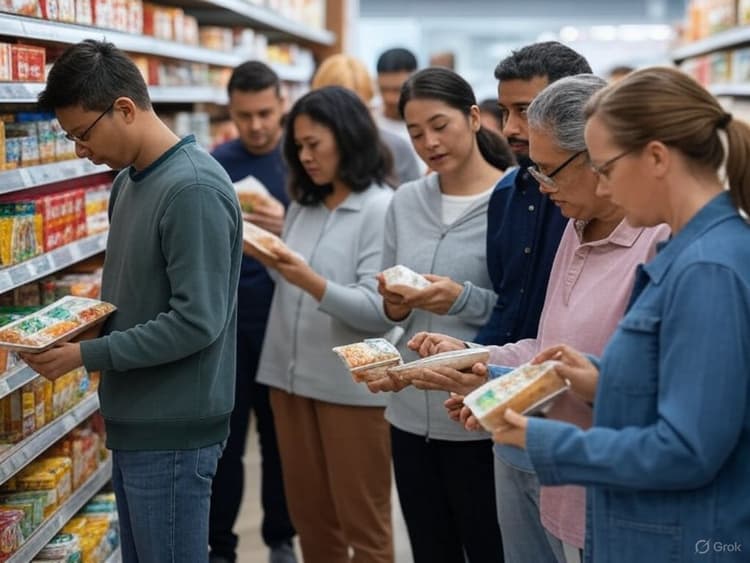Packaged foods have become an indispensable part of Ghana’s food landscape, filling the shelves of both modern supermarkets and neighbourhood shops.
From imported delicacies to locally manufactured staples, these convenient options cater to the fast-paced lifestyles of urban Ghanaians.
However, beneath their attractive packaging lies growing concern about food safety standards, questionable labelling practices, and gaps in regulatory oversight that demand closer examination.
Ghana’s packaged food sector has experienced exponential growth in recent years, transforming the nation’s eating habits.
The convenience of ready-to-eat meals, longer shelf life, and aggressive marketing have made products like instant noodles, canned goods, and powdered beverages household staples.
This shift reflects broader socioeconomic changes, including increased female workforce participation, rising disposable incomes, and the influence of global food trends.
Supermarket chains and online grocery platforms have further accelerated this trend, making processed foods more accessible than ever before.
Critical food safety concerns
Several alarming issues threaten consumer safety in Ghana’s packaged food market:
Expired Goods Circulation: Many retailers continue to sell expired products, often repackaged or discounted to unsuspecting customers.
Counterfeit Epidemic: Sophisticated fake versions of popular brands, particularly in the beverage and dairy sectors, have flooded the market.
Storage Deficiencies: Poor refrigeration and improper handling in supply chains lead to premature spoilage and contamination.
Hidden Health Risks: Excessive use of preservatives, artificial colours, and flavour enhancers in some products pose long-term health dangers.
Regulatory Framework: strengths and limitations
Ghana’s Food and Drugs Authority (FDA) serves as the primary guardian of food safety, with mandates covering product registration, market surveillance, and consumer education.
While the agency has made notable progress in banning hazardous products and improving labelling requirements, significant challenges persist.
The porous nature of Ghana’s borders facilitates smuggling of unregulated goods, while limited resources constrain the FDA’s ability to monitor the vast informal sector effectively.
Recent initiatives like the FDA’s mobile app for product verification show promise in bridging these gaps.
Empowering Consumers: Practical safety measures
Vigilant consumers can significantly reduce their risk exposure through simple but effective practices:
The government’s recent commitment to upgrade testing laboratories and implement stricter import controls signals positive change.
Meanwhile, consumer advocacy groups are playing an increasingly important role in holding manufacturers and regulators accountable.
Technological solutions like blockchain for supply chain transparency and rapid testing kits for market surveillance could revolutionise food safety monitoring in the coming years.

